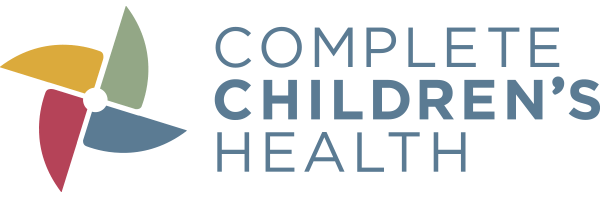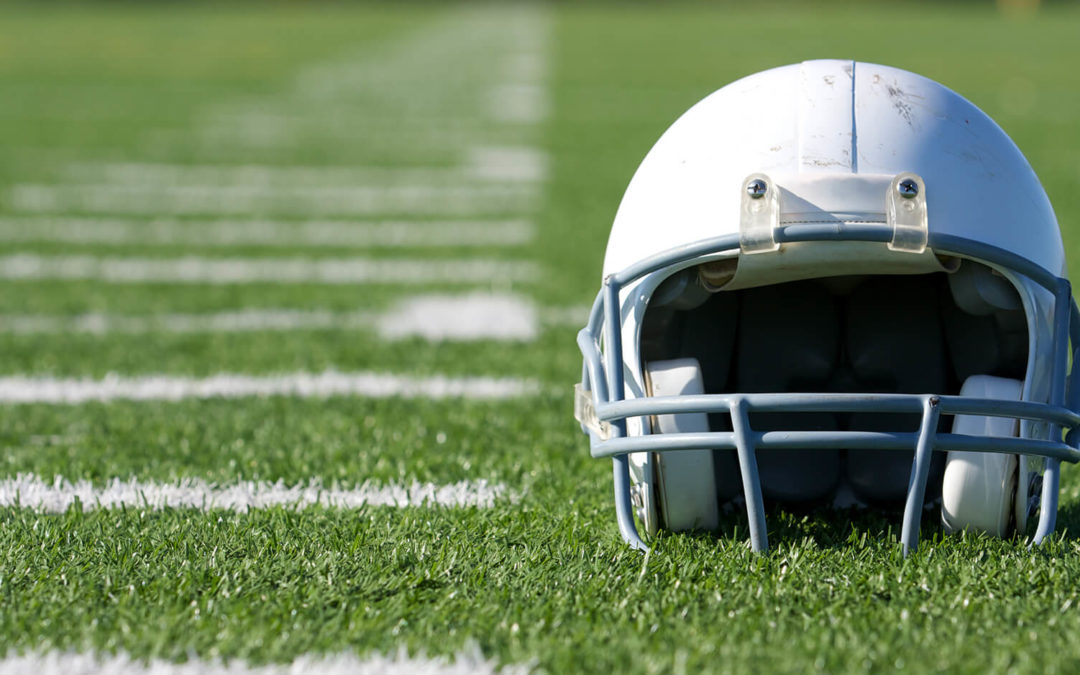By: Sian Jones-Jobst, MD, FAAP
It is one of a parent’s (and pediatrician’s) worst fears. Your child has suffered a head injury. They have headache and other mysterious symptoms or just “aren’t acting like themselves.” What do you need to know before and after that happens? Who should you go to for help? What can you to do help your child (and yourself)? Here’s some basic information to know about concussion, both sports related and otherwise.
What is a concussion?
A concussion is a brain injury that occurs from trauma or impact to the head/cranium or to another part of the body that causes the head to shake back and forth violently. Concussions cause the brain to function abnormally. They cannot be seen on MRI or CT scan. They don’t occur because of bleeding in the brain (another type of traumatic injury that can occur in addition to a concussion). Symptoms/signs of a concussion include but are not limited to: headache, dizziness/light headedness, balance problems, loss of consciousness/passing out, vision problems, confusion, difficulty concentrating, memory problems, emotional lability/mood swings, fatigue/sluggish feeling, depression, nervousness, light and noise sensitivity, nausea, and vomiting. These symptoms can occur immediately at the time of the head injury and can continue for days to weeks after an injury (often referred to as “post concussion syndrome”). A concussion is a serious injury, and can be even more serious for children and adolescents because their brain tissue is not fully developed. A concussion most often occurs WITHOUT LOSS OF CONSCIOUSNESS. This makes identifying a concussion difficult if you aren’t aware of the symptoms or looking for signs. Sometimes the only person who will know a concussion occurred is the victim themselves as the symptoms may be mild enough that parents, teachers, coaches, or trainers may not be aware of the child/adolescent’s symptoms.
How are concussions managed?
The management of concussion in most cases consists of:
- Watching for signs indicating a severe injury and seeking immediate care if these occur (see below).
- Resting the brain until it has healed (including removal from play immediately).
- Avoidance of activities that put the child/adolescent at risk of a second head injury before the brain has had time to recuperate.
- Avoidance of multiple concussions over the long term.
If your child has suffered a concussion or you suspect they have suffered one you should seek clearance from a medical professional before your child returns to school or play/practice.
Symptoms/signs that may indicate a severe injury and require immediate attention include: One pupil larger than the other, drowsiness/cannot be awakened, worsening headache that will not go away, weakness or numbness, decreased coordination, repeated vomiting or nausea, slurred speech, convulsions or seizures, difficulty recognizing people or places, worsening confusion/restlessness/agitation, unusual behavior, loss of consciousness (even brief).
Activities that can make the symptoms of concussion worse include vigorous exercise, bright light, “screen time” (computer, texting, television, iPad, etc.), loud noise, and tasks that require concentration (including school work, homework, and sometimes even just being in school). Often patients who have a concussion will feel “fine” when home resting, but upon returning to school they will have return of headache, dizziness, significant fatigue, or other symptoms. In such cases these patients should be kept home or avoid activities that worsen their symptoms; their brain is telling us “I need more time to heal.” The more you push the brain with activities/tasks that cause symptoms to worsen, the longer brain healing will take. When evaluating your child or adolescent for concussion your doctor should talk to you about what types of activities should be avoided, and may adjust those restrictions as needed over the following days to weeks.
Avoidance of a “second impact” is critical when managing a child or adolescent with a concussion. When the brain has suffered a concussion and is in the process of healing a second impact can cause severe and permanent damage. “Second Impact Syndrome” as it is referred to can cause severe brain swelling which can lead to severe disability and even death. The severity of this syndrome cannot be over-emphasized. It is absolutely critical to remove athletes from play immediately when a concussion occurs and restrict further high risk activities until they have healed.
Individuals who suffer from multiple concussions over the long term can have problems with memory, concentration, coordination, response time, and cognitive abilities. In addition emotional problems, depression, and anxiety have been shown to be more common in patients who have had multiple concussions. If your child has suffered multiple concussions talk to your doctor about continued participation in high risk sports/activities.
What should I do if I think I have/my child has had a concussion?
If it occurs at a practice or game pull your child/yourself from play immediately.
- Watch for severe symptoms (see above) and if present seek immediate medical attention. Even if no severe symptoms are present if you think a concussion may have occurred you should still seek care from your primary medical provider before returning to sports.
- Work with your physician to come up with a plan regarding return to play/return to school.
- Avoid “brain stimulating” activities that may delay healing (including computer, reading, television, loud music, bright lights, texting, and sometimes even attending school) until all symptoms are gone.
- Work with your school/your child’s school to get extra time for assignments, testing modifications if needed, and rest time during the school day if needed. Your physician may be able to help with this.
- Find out if your child was eligible for ImPACT testing prior to their injury. ImPACT testing is a type of neurocognitive testing that is being done for some high school athletes in the state of Nebraska and nationwide. A post-concussion test can be compared to an athlete’s “baseline” test to help in determining when it is safe for an athlete to return to play. If they did have baseline testing find out if the school can do post-injury testing. Talk to your doctor for more information.
What can I do to prevent concussion or its complications?
- ALWAYS Wear your protective gear including helmets and mouth guards as recommended by your sport/athletic association. Make sure they fit correctly and they are being worn correctly.
- ALWAYS wear your seatbelt and NEVER text and drive. Avoid other distracting activities when driving such as cell phone use, eating, and talking with other passengers.
- Make sure your coach/your student athlete’s coach is knowledgeable about concussion identification and management.
- Educate your child/athlete about concussion. If they don’t report symptoms the concussion may get missed with devastating consequences.
- Some concussions can’t be prevented but you can prevent complications. ALWAYS report symptoms of a concussion. ALWAYS immediately remove a concussed athlete from play. Get medical clearance before allowing a student with a concussion to return to play.
Can concussions occur outside of high risk athletics?
YES!!! Simple injuries in the hallways at school like banging a head on a locker, falling down stairs, or other seemingly minor injuries can lead to concussion. All it takes is a blow to the head. Sometimes the incident may seem minor, but the symptoms are severe. In those cases a concussion may have occurred. If you aren’t sure seek care from your physician.
Where can I get more information?
There is a great deal of information now available for concussion both sports related and otherwise. Here are some reliable sources you may find useful. These include handouts, videos, and online training programs for parents, students/athletes, school personnel, and coaches/trainers.
The Nebraska Sports Concussion Network: www.nebsportsconcussion.org
CDC: Heads UP Concussions in Youth Sports: www.cdc.gov/concussion/index.html
ConcussionWise: www.concussionwise.com

